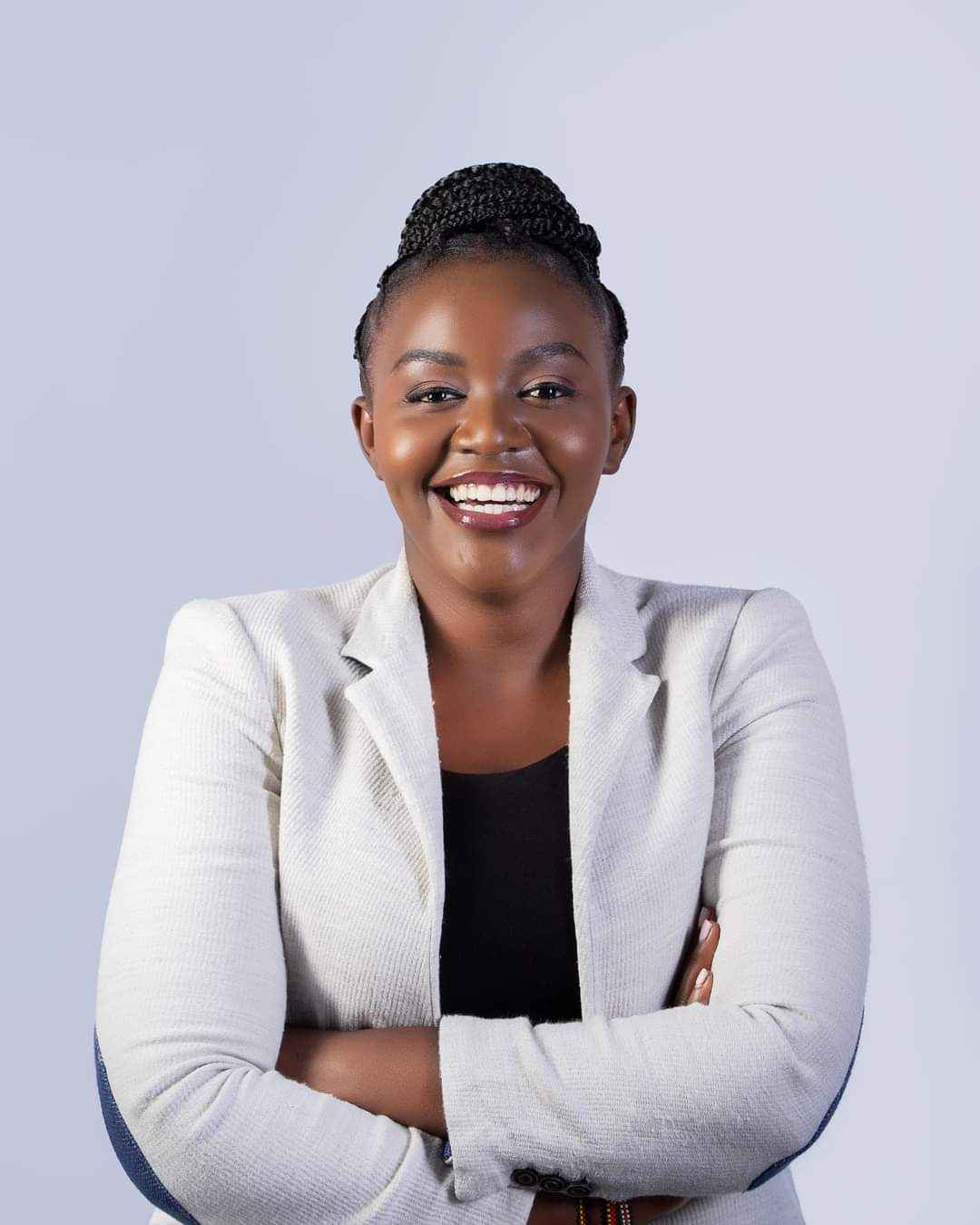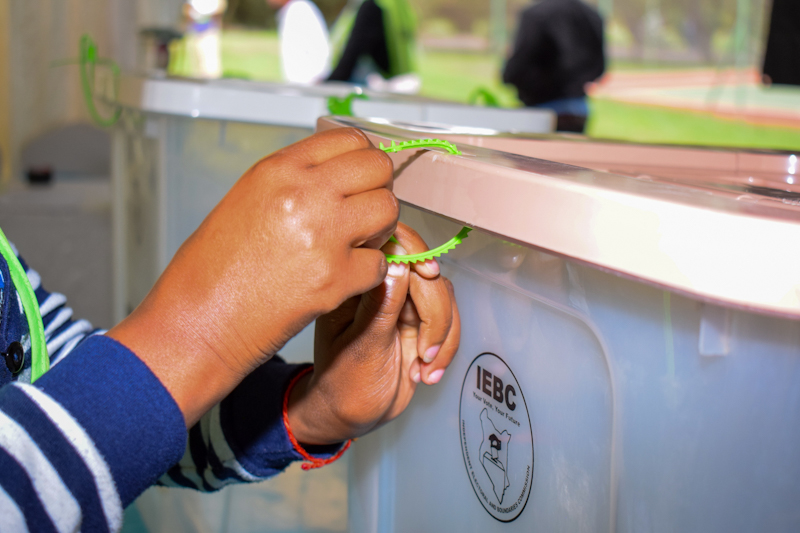Wanjiku Thiga, 32, is a communications and development consultant who vied for the Member of County Assembly (MCA) seat in Theta Ward, Juja Constituency, Kiambu County, in Kenya’s 2022 general election.
One of the strategies that Wanjiku employed to woo voters during the campaign season was the use of social media. Here, she talks about the unexpected online assassination of her character as she campaigned, something she was completely unprepared for. She shares her experience in this article.
“When I decided to run for office in October 2021, I did not have any time to waste, so I hit the ground running. Since I had been working for several years, I had amassed some savings, which I believed were sufficient to fund my campaign.
Together with my team, we developed a campaign strategy that outlined how we would conduct a door-to-door operation to reach those at the grassroots. We also detailed our online strategy targeting young and middle-aged social media users. The online audience would include those in the diaspora who we hoped would in turn influence their elderly parents and relatives, not on social media.
To prepare adequately, I attended a workshop on digital security, where I gained information about how to protect myself while in the digital space. Following the workshop, I put together a team of bloggers and trained them on best message development practices, how to respond to comments, how to counter opposition, and how to engage the audience constructively.
To reach a vast electorate audience, we decided to capitalize on WhatsApp, the most popular app among people, including those at the grassroots. We would further enhance our messages on Facebook and X (formerly known as Twitter).

Wanjiku Thiga, 32, is a communications and development consultant who vied for the Member of County Assembly (MCA) seat in Theta Ward, Juja Constituency, Kiambu County. Photo credit: Wanjiku Thiga
Campaign launch
Confident about my strategy, I officially launched my MCA bid in January 2022.
For this purpose, I developed a digital poster that featured my photo and the office I was running for. In it were details about how people could support me financially, as I wanted them to feel part of my campaign through their monetary contribution.
The poster was published on different popular WhatsApp groups in Theta Ward. These are groups where other candidates also posted their campaign messages. 17 people were running for the MCA Theta ward seat, and each of them, just like me, had their foot soldiers campaigning for them in the WhatsApp groups. I strategically placed my team of bloggers in the groups, some of which had as many as 700 members.
Things, however, did not go as expected on that first day. One of the first people to comment on one of the popular WhatsApp groups was my former primary school teacher.
“This one here is asking us for our votes and our money too.”
His comment surprised me.
This is someone who was well known to me, someone who I expected to be my foremost cheerleader. But his comment indicated otherwise. There was no hint of support in his message.
The second comment sank my heart further. It was that of a young man I was mentoring in leadership.
“Don’t dare give this woman your money or your votes. She’s just a spoiled girl who is undeserving of your attention. She will not deliver. I’ve worked with her, so you must believe me,” he said.
Considering that he was a popular figure in Theta Ward, his false sentiments carried weight. I could not believe that the people on whom I thought I could depend were the first ones to cast doubt on my bid.
I would go on to read other comments about me in the WhatsApp groups, which were equally disheartening.
Unmarried and childless
At the time of my campaign, I was 31 and single, with no children. Something that became the centre of focus.
“Madam, this is not a beauty contest! All you are doing is sharing posters of you dolled up in lipstick and makeup. Do you think we are interested in your photoshoots? Focus on getting yourself a husband first because you are too old to be single anyway,” they said.
The spiteful comments went on.
“The only good thing about this girl is what is between her legs,” one man said, completing his statement with a string of laughing emojis. His comment was ‘liked’ by other group members, some of whom I knew very well. This broke my heart.
Accused of having affairs
Soon, I began reading comments about the affairs I was having, all of them untrue.
They said that I was having an affair with my party’s secretary general. Then I read about how I had dumped him, and I was now sleeping with the party chairman. Shortly, they said I was having transactional sex with political brokers. Later, they wrote about how I was now moving with Kiambu’s wealthiest men for financial support. I was called a homewrecker and a whore. Women were warned against voting for me because I would steal their husbands.
I was shocked. The allegations were absurd!
Women did not spare me in their comments.
“Huyu anasema nini na matiti yake hata haijateremka? Azae kwanza ndio atuongeleshe” (Her breasts have not even dropped. She should first give birth to earn the authority to talk to us.)
I was stripped naked in those groups. The comments were false and shameful. What saddened me most was that my family members—my mother, grandparents, aunts, uncles, cousins, and other people whom I highly respected—were members of these groups. They read all the vitriol that was being thrown at me.
Violence goes offline
One day, my sister and I were walking in the village when we approached a group of men who were seated by the roadside. One of them recognized me from my posters and invited me to address them. Happy to sell my agenda, I agree. He then told his colleagues, ‘This is the girl from WhatsApp who wants our votes for the MCA seat.’
One of the men then responded, ‘Oh, you mean this girl here? She’s beautiful. This one, I can easily put my manhood inside her!’, his words generated roaring laughter from the rest as they hi-fived each other.”
Stunned, my sister and I quietly walked away. That was one of my lowest moments during my campaign. I felt that because I was being trolled in the WhatsApp groups, people felt that it was okay for them to do so physically and get away with it.
My obsession with comments
Miserable about what was happening, my appetite dipped. I struggled to sleep and would lay awake all night, scrolling through comments in the WhatsApp groups.
I would read each message posted about me as I held my breath, my heart pounding so loudly and fast that it threatened to explode from my chest. It became an obsession as I found it hard to put my phone down.
Subsequently, my mental health went to the pits. My stress levels affected my physical body. When I launched my campaign, I was 64 kg, but in just a few months, I dropped to 50 kg. I was slowly sinking into depression.
Panic attacks and burst ulcers
One day, I was experiencing a severe headache from the stress of it all. It was at night, and I had just finished scrolling through the venomous comments. Then I started vomiting. I was also breathing very fast and releasing heavy, disturbing sounds. I called out for my mother, who screamed when she saw me.
I was rushed to the hospital, where the doctor said I was having a panic attack. He added that the stress had caused my ulcers to burst—ulcers that I never knew I had in the first place!
Taking an online break
Following this experience, my campaign team advised me to take a break from all social media platforms. But this idea did not sit well with me.
If I was off social media, how was I going to read what people were saying about me? Even after the scary hospital experience, I still wanted to know what people were saying. It was only after those close to me counselled and warned me about the situation that I agreed to go offline.
Being offline helped, as my mind took a break. Even as I continued to campaign, I was now doing so with renewed focus and was not obsessed with people’s malicious comments. My team filtered the comments made about me, and we built on the constructive comments, which helped advance my campaign.
Unfortunately, I was not successful in receiving the nomination certificate from my political party. Not one to give up easily, I chose to run on an independent ticket. I emerged in position 5 among the 17 contestants, something that I’m proud of.
Reporting offenders
I thought about reporting the people who were publishing false statements about me, but I faced a dilemma.
The offenders were people well-known to me. People I had schooled with, went to church with, and interacted with in the local market centres, at village functions, and other places. How, then, could I report them to the police?
Besides, if I reported them, would I get the votes that I was seeking? The parents would have said, ‘Don’t vote for Wanjiku Thiga because she reported my son to the police, and now he has a case in court. I would become the enemy of the people—the same people I was trying to appease for their votes.
I had to ask myself a difficult question: do I want justice, or do I want votes?
I chose votes.
Facing the ballot again in 2027
Undeterred, I will run again for political office in 2027. Next time, though, I’ll be more careful about campaigning online.
I had never envisioned WhatsApp to be a platform that could be used by people for malicious purposes and with such damaging effects. I didn’t know how powerful it could be. Now I know better and will never dismiss the power of any digital medium to affect one’s general health and well-being. I will be careful to safeguard my mental health next time.
Next time, I’ll report people who abuse me and publish false statements about me. They will need to be held accountable for their actions. I will choose justice over votes, regardless of the repercussions.”
RELATED
- Behind the Newsfeed: The Chilling Tale of a Journalist Hunted by Her Own Story
- Hated, but Unafraid: Living with HIV in the Age of Online Hate
- The Price of Visibility: A Queer Activist’s Battle with Online Trolls
This interview was conducted by Maryanne W. Waweru as part of KICTANet and APC’s Our Voices Our (OVOF) work. This anthology of stories under the title “Narratives of Strength and Survival” is aimed at documenting the lived experiences of Kenyan women and girls who have faced online gender-based violence at a personal level.
![]()




